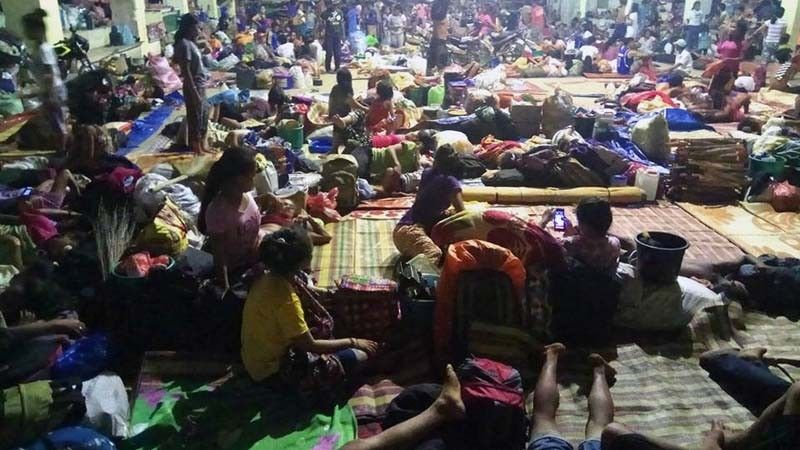House OKs bill penalizing arbitrary displacement of 'bakwit'

MANILA, Philippines — The House of Representatives has approved on final reading a measure that imposes jail time of up to 20 years on all forms of arbitrary internal displacement.
House Bill 8269 seeks to prevent displacement and establish safeguards and financial aid for persons forced to flee their homes. It also spells out penalties for individuals or groups committing arbitrary acts of displacement on any person, including non-combatants affected by violence during armed conflicts.
All 212 lawmakers present voted in favor of the measure on Wednesday.
If passed into law, the proposed Rights of Internally Displaced Persons Act will serve as the country’s first law related specifically to protecting the rights of internally displaced persons and punishing the acts that forcibly displace them.
The Commission on Human Rights said in 2018 that the country's legal framework for responding to incidents of displacement, which is outlined in the Philippine Disaster Risk Reduction and Management Act of 2010, is more focused on structures rather than rights. The framework is also limited to "response actors” and systemic solutions, the human rights body said.
Millions of Filipinos are forcibly displaced each year due to armed conflicts and natural disasters, according to the Internal Displacement Monitoring Center.
In 2022, the monitoring body estimated that about 102,000 individuals were displaced due to conflict and violence, while five million are estimated to be forcibly displaced due to natural disasters like storm-related events.
Typhoon "Paeng" was the most significant event that caused the largest number of displacements in the country and the Asia-Pacific region in 2022, which is estimated at around three million displaced persons.
What the measure contains
The proposed measure seeks to guarantee the safety of victims and noncombatants caught in the crosshairs of armed conflict in accordance with international humanitarian law, international customary law, international human rights laws, as well as domestic laws, said House Speaker Martin Romualdez, one of the principal authors of the measure.
The measure imposes a penalty of “reclusion temporal” (or jail time of 12 years and one day to 20 years) for the following acts:
- Direct perpetrators of arbitrary internal displacement.
- Those who force, encourage, or incite others to commit such displacement.
- Those who cooperate or enable the displacement by committing related acts.
- Those who assist in the displacement through prior or simultaneous actions.
- Commanding officers or authorities held responsible for their failure to prevent or address such displacement by their subordinates.
Those who had knowledge of the displacement, did not directly participate, but engaged in certain actions afterward, face “prision mayor” in its minimum period (six years and one day):
- Profiting from the effects of the displacement.
- Concealing the displacement or destroying evidence to prevent its discovery.
- Harboring, concealing, or aiding the escape of the main perpetrators of the displacement.
The penalty for attempted arbitrary internal displacement is also jail time of six years and one day.
The proposed bill also provides for monetary compensation for lost or damaged property or for the death of family members due to displacement.
A similar version of the Rights of Internally Displaced Persons Act was approved by Congress in 2013.
The measure, however, was not signed into law by President Benigno Aquino III, who vetoed the measure due to what he said were overbroad powers given to the Commission on Human Rights and concerns over provisions that differentiate between displacements caused by state and non-state actors.
- Latest
- Trending





























